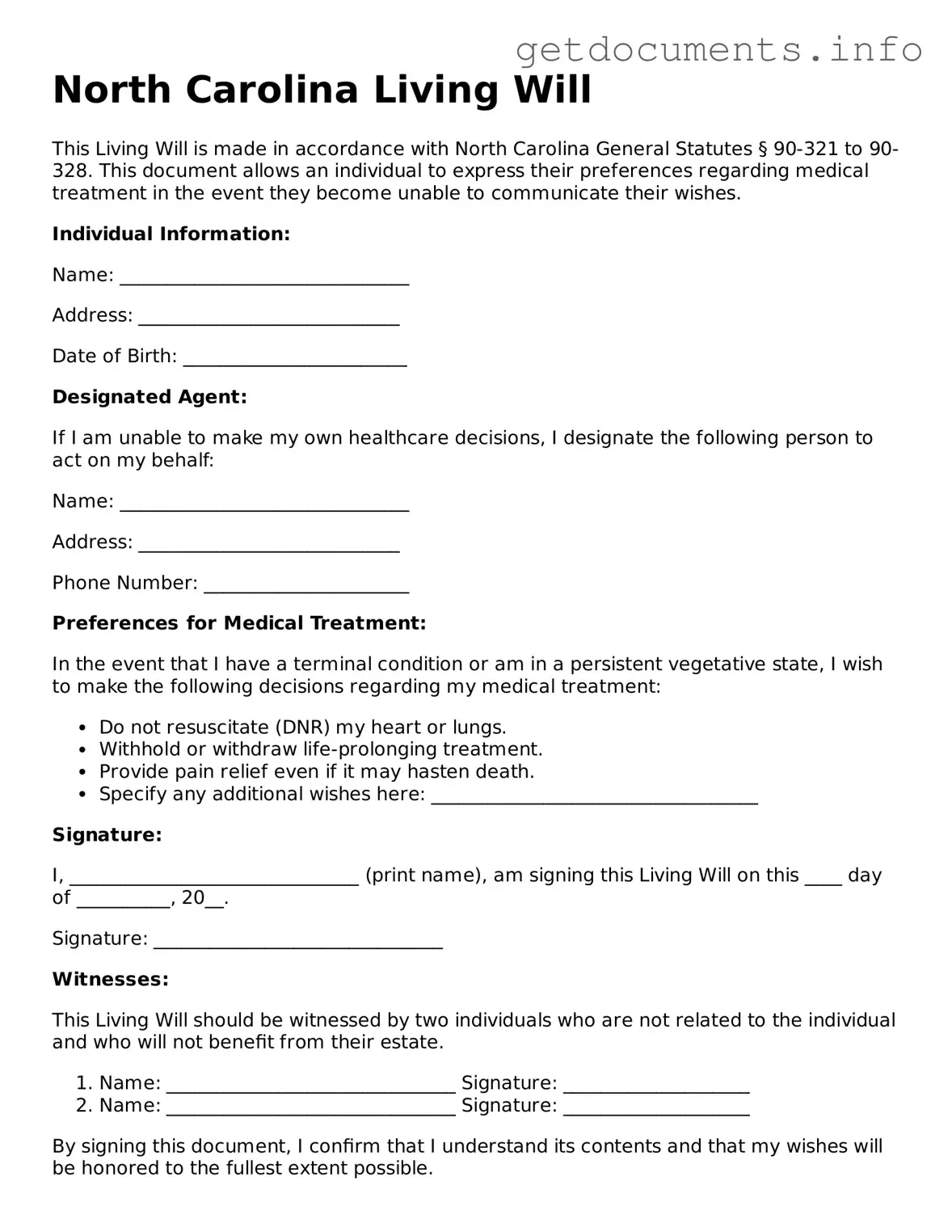Free Living Will Template for North Carolina
A North Carolina Living Will is a legal document that outlines a person's preferences for medical treatment in the event they become unable to communicate their wishes. This form helps ensure that individuals receive care aligned with their values and desires, particularly concerning end-of-life decisions. Understanding and completing this form is crucial for anyone looking to make their healthcare choices known.
Take control of your healthcare decisions today by filling out the North Carolina Living Will form. Click the button below to get started!
Access Living Will Editor

Free Living Will Template for North Carolina
Access Living Will Editor
Got places to be? Complete the form fast
Fill out Living Will online and avoid printing or scanning.
Access Living Will Editor
or
⇩ PDF File
